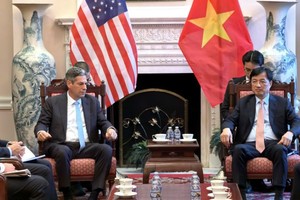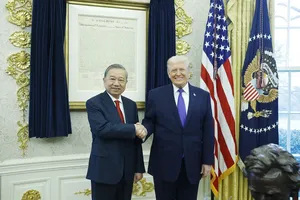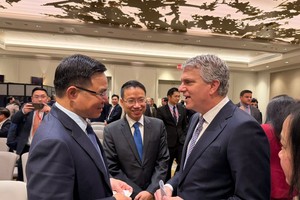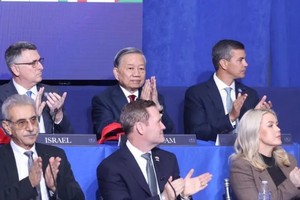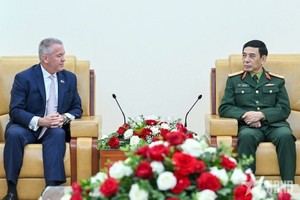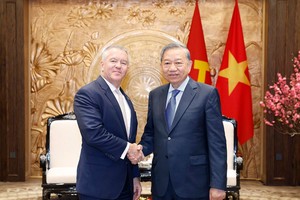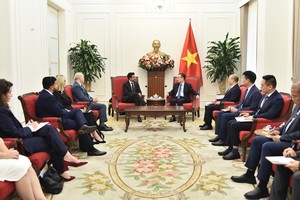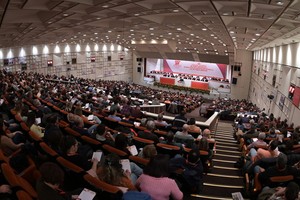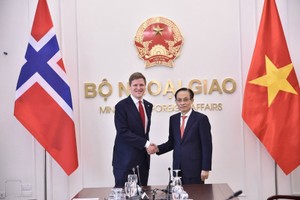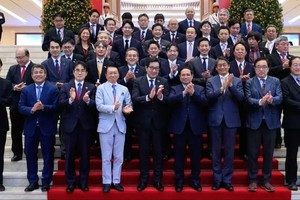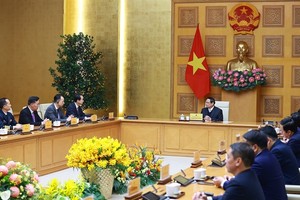DUBAI, Jan 11, 2010 (AFP) - Faced with an armed revolt in the north and a separatist movement in the south, Yemen's president is using the Western-backed war against Al-Qaeda to bolster his regime and muzzle opponents, say analysts.

The threat from Islamist militants poses less of a danger for Sanaa than the Zaidi Shiite insurrection on the border with Saudi Arabia or the independence calls in southern Yemen, according to Yemen experts.
"The regime is exploiting the war against Al-Qaeda to attract foreign aid and curb the opposition," said anthropologist and Yemen specialist Franck Mermier.
With the West pressuring President Ali Abdullah Saleh to crack down on the Yemen branch of Al-Qaeda, "it is in the interests of the regime ... to play the Al-Qaeda card to silence its opponents," Mermier added.
The government was trying to "Al-Qaeda-ise" its enemies.
It suggests they are linked to Osama bin Laden's network, especially Shiite rebels in the north who have been fighting the government since 2004 and the southerners, "most of whom are opposed to armed struggle," Mermier said.
The south, which was an independent state from 1967 until Yemen was united in 1990, has been the scene of protests against the government's repressive policies and its attempts "to amalgamate the southern movement and Al-Qaeda," according to one of the movement's leaders.
Separatists often complain of discrimination by northerners and a lack of financial aid.
But even if US military and financial support, in the name of the war on Al-Qaeda, "ends up strengthening Sanaa initially," the government "could see a second more dangerous front opening up in the south," Mercier warned.
"The regime's policies are pushing its opponents towards more radical options, like separatism for the south."
Mohammad al-Zahiri, professor of political science at Sanaa University, agrees that Yemen's government is deliberately "exaggerating the Al-Qaeda threat in order to export or internationalise its problems."
"The state is taking advantage of the West's interest (in combating Al-Qaeda) ... and avoiding its own internal problems," he added.
But such an approach "cannot resolve Yemen's problems and is very short-sighted," said Zahiri, concerned that "military solutions will only lead to a rise in anti-Americanism in the country."
He said only dialogue can achieve a permanent solution.
Zahiri was referring to the rebellion in the north, the demands of southerners and also the domestic opposition, angered by parliament's agreement last February to delay legislative elections by two years.
"2009 has been the worst year for Yemen," said Fares al-Saqqaf, director of the Centre for Future Studies in Sanaa.
"The country now faces five challenges: the rebellion in the north, which is intensifying, the southern question, which has turned into a separatist movement and is no longer peaceful, the Al-Qaeda threat, internal political opposition and the economic crisis."
For Saqqaf, "the key to the solution is not military, but political and economic ... Yemen cannot confront Al-Qaeda except by pacifying its other fronts, especially in the north and south."
"The whole world wants to crush Al-Qaeda in Yemen. The country could take advantage of this conflict to demand economic aid, which would help to resolve its problems."
He proposed the oil-rich Gulf states offer aid to the impoverished Arabian peninsula state "in the form of a Marshall plan," referring to the post-World War II reconstruction plan for Europe.
The government has turned to the six Gulf Cooperation Council states for help but analysts say it has been almost negligible, although Riyadh has given Sanaa 7.2 billion dollars in aid over the past 10 years.
